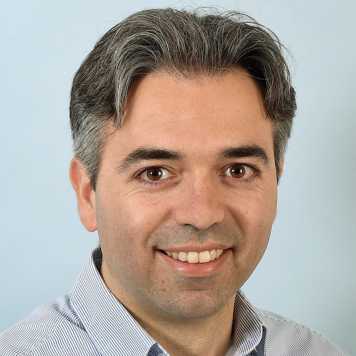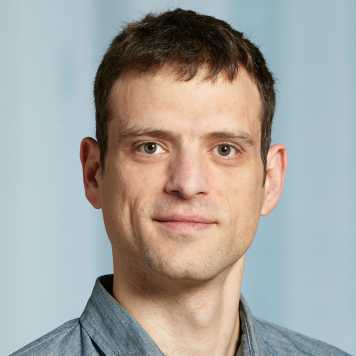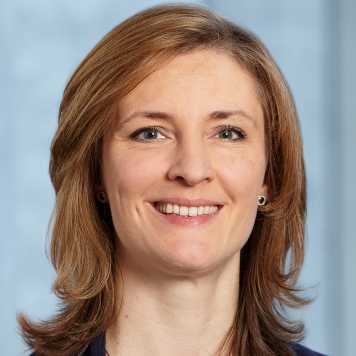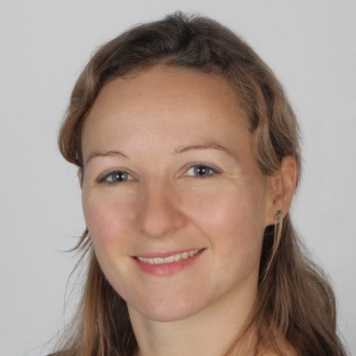ETH researchers on the road to success
Four researchers from ETH Zurich have successfully applied for ERC Consolidator Grants worth EUR 2 million.
Researchers from ETH Zurich have been successful in the allocation of prestigious ERC Consolidator Grants: two female and two male scientists have each received a grant of on average EUR 2 million. ERC Consolidator Grants are awarded to successful researchers to help them continue to build their own research groups.
Higher success rate than the European average
Nine ETH group leaders submitted an application to the European Research Council (ERC); six made it to the next round and ultimately four were awarded funding. ETH researchers therefore achieved a success rate of 44 percent – significantly higher than the current European average of approx. 12 percent.
Five of the nine ETH applications received a score of “A”. In other words, the ERC considered a fifth ETH application to be eligible in principle for funding, but was not in a position to support it financially.
“Our researchers have once again proven their leading position on the international stage. I am particularly happy that our female scientists were so successful during this call for proposals,” says Detlef Günther, Vice President Research and Corporate Relations at ETH Zurich. Two of the four Consolidator Grants went to women; the third application submitted by a woman received a score of “A”. “I believe that these successes will serve as an inspiring example,” says Günther.
The selected projects cover a wide range of subject areas: from development of a vaccine against salmonella infections to exploration of the cosmic web that organises matter in our universe. (see brief introduction below)
No grants without a framework agreement?
The continued financial support of Swiss researchers by the European Union is still up in the air. With the European research and innovation programme Horizon 2020 set to expire at the end of next year, talks are currently underway on the new Horizon Europe framework agreement between Switzerland and the EU. It is essential that the two parties reach an agreement so that researchers at Swiss universities can continue to apply for ERC Research Grants in the future.
Researchers from Switzerland have been able to apply for EU funding since 2007. In addition to the Consolidator Grants, the ERC also awards Advanced Grants to established researchers and Starting Grants to those in the early stages of their careers. Furthermore, ERC Proof of Concepts Grants (funding for the preparation of feasibility studies and business plans) offer scientists the opportunity to translate their fundamental research into innovations with economic benefits.
The ERC is part of the European research and innovation programme Horizon 2020 (2014-2020), to which Switzerland has again been fully affiliated since 1 January 2017.
The four projects at a glance:

Our current cosmological model suggest that matter in the universe is distributed in a network of filaments, the “Cosmic Web”, connecting all galaxies. In his ERC program, Sebastiano Cantalupo will use the most advanced telescopes and facilities now or soon available to obtain a direct picture of this Cosmic Web illuminated by quasars and galaxies. By comparing this data with new models that will be developed for this project, his team will address fundamental questions for our understanding of the universe, including: what is the nature of Dark Matter? How is matter distributed within Cosmic Web filaments? How do galaxies form and evolve within these filaments?

Stelian Coros envisions a future where skilled, lifelike robots will make the world a better place by assisting people with various tasks. To help make this vision a reality, he draws inspiration from nature. In the animal kingdom, for example, structural compliance arising from soft materials is an integral part of the design of every biomechanical system, defining the performance, efficiency, robustness and safety of its movements. In his ERC project, Stelian Coros will establish a systematic way of exploring this mechanical side of intelligence. He will leverage the latest advances in additive manufacturing technologies, and he will develop the computational and mathematical foundations required to design new breeds of robots that exploit compliant materials as effectively as human and animals do.

Paola Picotti is a professor of Molecular Systems Biology and is fascinated by proteins and the networks they build in cells. Together with her team, she develops mass spectrometry-based proteomic approaches to study protein networks and applies them to research neurodegenerative diseases such as Parkinson. With her grant, Picotti wants to find out, whether protein structures, measured on a global scale in biological specimens, can serve as new readout to study complex phenotypes, detect pathological alterations and generate molecular hypotheses, thus linking the “big data” and classic molecular biology approaches. The group will apply the new method to shed light on the role of protein super-assemblies in health, disease and aging.

ETH Professor Emma Wetter Slack's research goal is to develop better vaccines to protect against infections with pathogenic intestinal bacteria such as salmonella. Such vaccines would not only be interesting for use in humans, but also in farm animals. In her previous research, the immunologist has shown that certain antibodies can provide this protection. However, the development of vaccines that induce the production of such antibodies in the body remains a challenge. In her ERC project, Wetter Slack accepts this challenge – among other things by studying in detail the basics of how antibody-producing immune cells interact with surface molecules of these bacteria.
Benchmark for top researchers: ERC Grants
ETH researchers have been successfully applying for EU funding – ERC Research Grants – since 2007. In addition to the Advanced Grants, the European Research Council also annually awards Starting Grants to young researchers at the beginning of their careers and Consolidator Grants to successful researchers looking to establish their own group. What’s more, the large number of ERC Proofs of Concept produced by ETH Zurich (funds for drafting feasibility studies and business plans) shows that fundamental research often leads to market innovations with corresponding benefit for the entire economy. The European Research Council (ERC) is part of the EU Research and Innovation programme Horizon 2020 (2014–2020). Switzerland was readmitted as a full participant in Horizon 2020 on 1 January 2017.
